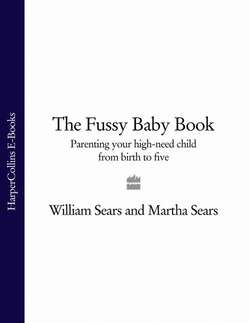Читать книгу The Fussy Baby Book: Parenting your high-need child from birth to five - Martha Sears - Страница 67
crying and child abuse
ОглавлениеOne day I was counselling a teenage mother who had confessed to beating her one-year-old child with a wooden spoon. During our session, this usually capable and caring girl broke down crying. “His cries were so grating on my nerves, and he wouldn’t stop. Those shrieks just got to me, and I got so angry. I had flashbacks of my father hitting me with a wooden spoon during one of my tantrums. Before I knew it, I grabbed the wooden spoon and let this poor little baby have it.”
Child abuse studies have shown the following findings:
• Battered babies generally have more disturbing cries.
• Battering parents are more likely to label their babies “difficult”.
• Battering parents are more likely to practise a less responsive style of parenting.
It is important to teach babies to cry, “better”, so they don’t develop an ear-grating cry that triggers anger rather than empathy. Much child abuse could be avoided by teaching parents who are at risk for child abuse (families in high-stress situations and parents who were themselves abused as children) to give a nurturant response to their baby’s cries. The prevention of child abuse is another example of the good that can happen when parents learn to listen to their babies.
Anticipate. The best way to ward off an all-out wail is to try, as much as possible, to set conditions so that baby does not have to cry to get her needs met. Try to read your baby’s pre-cry signals and intervene at that point; don’t let her learn that she has to cry loudly to get a response. The skill of anticipating cries can come only after days and weeks of baby watching, learning to pick up on little cues that say that your baby needs something, that a cry is soon to follow. If your baby sucks on her fingers, seems disappointed, and then starts to cry, next time feed her when the finger sucking begins, a cue that she is hungry. You’ll avoid the crying stage. Developing your skills as a baby-comforter means walking that fine line between responding too quickly and waiting too long. This will be different for different babies and in different situations. Don’t worry, your baby will grade you mainly on your effort, not on whether you always read the cues right.
